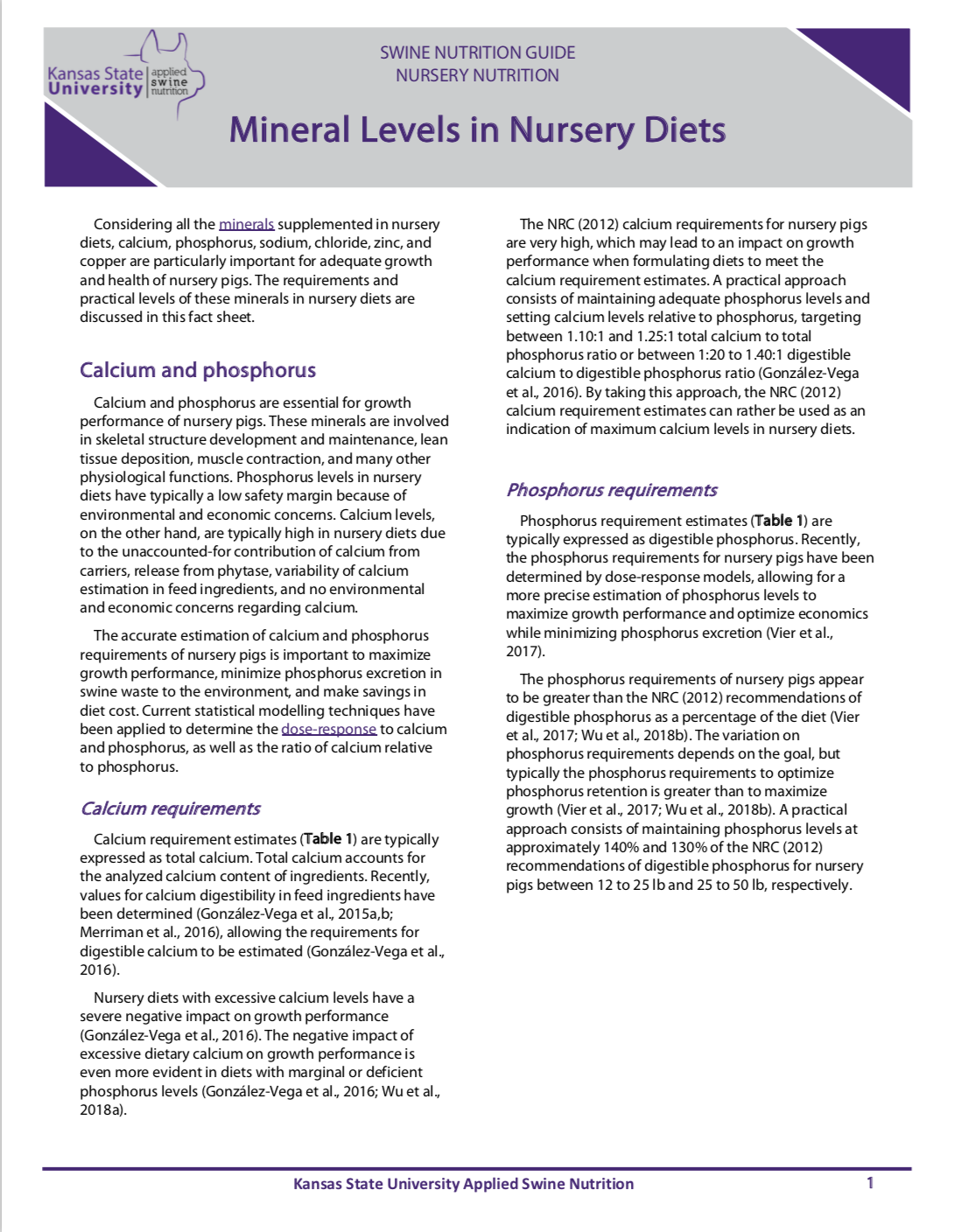Dietary electrolyte balance in nursery diets
Dietary electrolyte balance represents the ratio of cations and anions in a diet and is important for acid-base status of pigs. The dietary ions that mostly influence electrolyte balance are sodium, chloride, and potassium. Dietary electrolyte balance is determined by the difference between cations and anions in the diet: Na + K - Cl. However, more comprehensive estimation of dietary electrolyte balance also takes into account the contribution of divalent ions, such as calcium, magnesium, sulfur, and potassium.
Traditionally, the optimal dietary electrolyte balance for pigs is reported to be approximately 250 mEq/kg (NRC, 2012). In nursery pigs, increasing dietary electrolyte balance to approximately 200 to 250 mEq/kg seems to have beneficial effects on growth performance (Lei et al., 2017; Jones et al., 2018).
